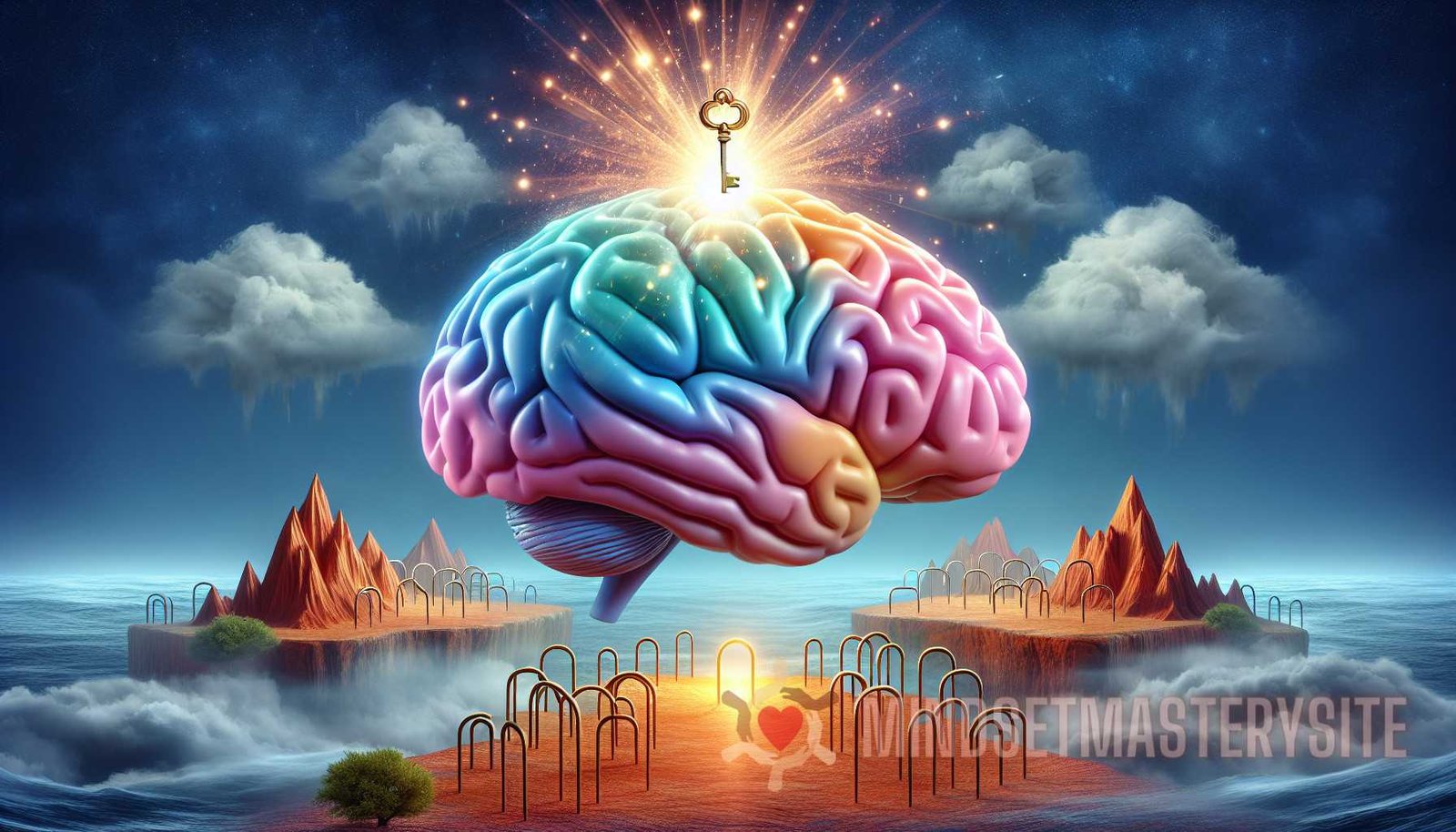The Resilient Mind: How Cognitive Strategies Can Help Overcome Life’s Challenges
Life is full of challenges and obstacles that can test our resilience. Whether it’s dealing with personal setbacks, coping with stress, or facing difficult situations, having a resilient mind is crucial for navigating through life’s ups and downs. Cognitive strategies are powerful tools that can help us build and unleash our resilience, enabling us to bounce back stronger and thrive in the face of adversity. This article explores the concept of cognitive resilience and delves into the various strategies that can be employed to develop and strengthen it.
Understanding Cognitive Resilience
Cognitive resilience refers to the ability to maintain mental well-being and bounce back from setbacks or adversity. It is the capacity to adapt and recover quickly, effectively utilizing cognitive processes to overcome life’s challenges. Cognitive resilience encompasses various cognitive skills, such as problem-solving, critical thinking, emotional regulation, and flexible thinking, that allow individuals to navigate stress, trauma, and other difficult experiences.
Cognitive resilience is not a fixed trait but can be developed and enhanced through practice and conscious effort. By employing specific cognitive strategies, individuals can become more resilient, better equipped to handle adversity, and able to maintain their well-being even in challenging circumstances. These strategies are based on scientific research and have been shown to be highly effective in building resilience and improving mental health outcomes.
The Power of Cognitive Strategies
Cognitive strategies are mental processes and techniques that help individuals recognize, challenge, and manage negative thoughts, emotions, and behaviors. These strategies enable individuals to reframe their mindset, develop a positive outlook, and build mental resilience. Here are some powerful cognitive strategies that can be employed to overcome life’s challenges:
- 1. Thought Challenging: Thought challenging involves questioning and challenging negative or irrational thoughts that contribute to distress or hold us back. By examining the evidence for and against these thoughts, individuals can develop a more balanced and realistic perspective, allowing them to overcome self-defeating beliefs and promote resilience.
- 2. Cognitive Restructuring: Cognitive restructuring involves replacing negative or unhelpful thoughts with more positive and adaptive ones. By recognizing and reframing distorted thinking patterns, individuals can change their perceptions of events, reduce distress, and improve their ability to cope with challenges effectively.
- 3. Mindfulness Meditation: Mindfulness meditation is a practice that involves focusing on the present moment and developing a non-judgmental awareness of one’s thoughts, emotions, and sensations. By cultivating mindfulness, individuals can enhance their ability to regulate emotions, reduce stress, and build resilience.
- 4. Problem-Solving: Effective problem-solving involves breaking down complex problems into manageable steps, generating and evaluating potential solutions, and taking decisive action. By developing problem-solving skills, individuals can tackle challenges head-on, alleviate stress, and enhance their adaptive coping strategies.
- 5. Reframing: Reframing involves changing one’s perspective or interpretation of a situation to create a more positive and empowering outlook. By reframing challenges as opportunities for growth and learning, individuals can build resilience, maintain a positive mindset, and thrive in the face of adversity.
- 6. Self-Compassion: Self-compassion involves treating oneself with kindness, understanding, and acceptance, particularly in times of difficulty or failure. By cultivating self-compassion, individuals can reduce self-criticism, enhance self-esteem, and foster resilience in the face of setbacks.
The Science Behind Cognitive Resilience
The concept of cognitive resilience is grounded in scientific research that has highlighted the powerful impact of cognitive strategies on mental health and well-being. Numerous studies have demonstrated the effectiveness of cognitive strategies in promoting resilience, reducing symptoms of depression and anxiety, enhancing problem-solving skills, and improving overall mental health outcomes.
Research has shown that practicing cognitive strategies can lead to neuroplasticity, the brain’s ability to reorganize and form new neural connections. Through neuroplasticity, individuals can develop new neural pathways that promote positive thinking, emotional regulation, and problem-solving skills, enabling them to cultivate resilience and cope effectively with life’s challenges.
Likewise, studies have shown that cognitive resilience can have a profound impact on physical health. By reducing stress and enhancing adaptive coping strategies, cognitive resilience can lower the risk of various chronic diseases, improve immune system function, and enhance overall well-being. The mind-body connection plays a crucial role in resilience, highlighting the importance of cognitive strategies in maintaining holistic health.
The Benefits of Cognitive Resilience
Developing cognitive resilience and employing cognitive strategies can have numerous benefits in various aspects of life. Here are some key benefits of cognitive resilience:

- 1. Improved Mental Health: Cognitive resilience promotes mental well-being, reducing symptoms of depression, anxiety, and other mental health disorders. By developing cognitive strategies, individuals can build psychological resilience and enhance their ability to cope with life’s challenges effectively.
- 2. Enhanced Problem-Solving Skills: Cognitive resilience fosters critical thinking and problem-solving skills, enabling individuals to tackle challenges more effectively. By developing cognitive strategies, individuals can enhance their problem-solving abilities and find innovative solutions to complex problems.
- 3. Increased Emotional Intelligence: Cognitive resilience is closely linked to emotional intelligence, the ability to manage and understand one’s emotions and the emotions of others. By developing cognitive strategies, individuals can enhance their emotional intelligence, becoming more empathetic, self-aware, and socially adept.
- 4. Better Stress Management: Cognitive resilience equips individuals with effective stress management techniques, enabling them to handle stress more efficiently and maintaining their well-being even in challenging situations. By developing cognitive strategies, individuals can reduce stress and prevent it from escalating into chronic stress or burnout.
- 5. Enhanced Creativity and Innovation: Cognitive resilience fosters flexible thinking and promotes creativity and innovation. By developing cognitive strategies, individuals can overcome cognitive biases, think outside the box, and approach challenges with a fresh perspective.
- 6. Improved Interpersonal Relationships: Cognitive resilience enhances social skills, communication, and conflict resolution abilities, fostering healthy and fulfilling interpersonal relationships. By developing cognitive strategies, individuals can navigate complex social dynamics, resolve conflicts effectively, and build strong connections with others.
Building Cognitive Resilience
Building cognitive resilience requires consistent practice and effort. Here are some practical steps that individuals can take to develop and strengthen their cognitive resilience:
- 1. Seek Professional Help: If you are struggling with mental health issues or challenges, it is essential to seek professional help. A mental health professional can provide guidance and support in developing cognitive strategies and building resilience.
- 2. Practice Mindfulness Meditation: Engage in regular mindfulness meditation to cultivate present-moment awareness, develop emotional regulation skills, and reduce stress.
- 3. Challenge Negative Thoughts: Practice thought challenging techniques to challenge and reframe negative or irrational thoughts that contribute to distress or hold you back.
- 4. Educate Yourself: Learn about cognitive strategies and their effectiveness in building resilience. Educate yourself about the science behind cognitive resilience to gain a better understanding of its benefits.
- 5. Practice Self-Compassion: Cultivate self-compassion by treating yourself with kindness, understanding, and acceptance, particularly in times of difficulty or failure.
- 6. Build a Supportive Network: Surround yourself with positive and supportive individuals who can provide encouragement, empathy, and practical assistance during challenging times.
- 7. Take Care of Your Physical Health: Prioritize your physical health by engaging in regular exercise, maintaining a balanced diet, and getting enough sleep. Physical well-being is closely linked to mental resilience.
Conclusion
Cognitive resilience is a powerful tool that can help individuals overcome life’s challenges and bounce back stronger. By employing cognitive strategies, individuals can develop the necessary skills to navigate stress, trauma, and other difficult experiences. Building cognitive resilience enables individuals to maintain mental well-being, enhance problem-solving skills, manage stress effectively, and foster healthy relationships. By developing cognitive resilience, individuals can unleash their full potential and thrive in the face of adversity.
To learn more about the science of cognitive resilience and how to develop it, check out this research article available on PubMed Central.


